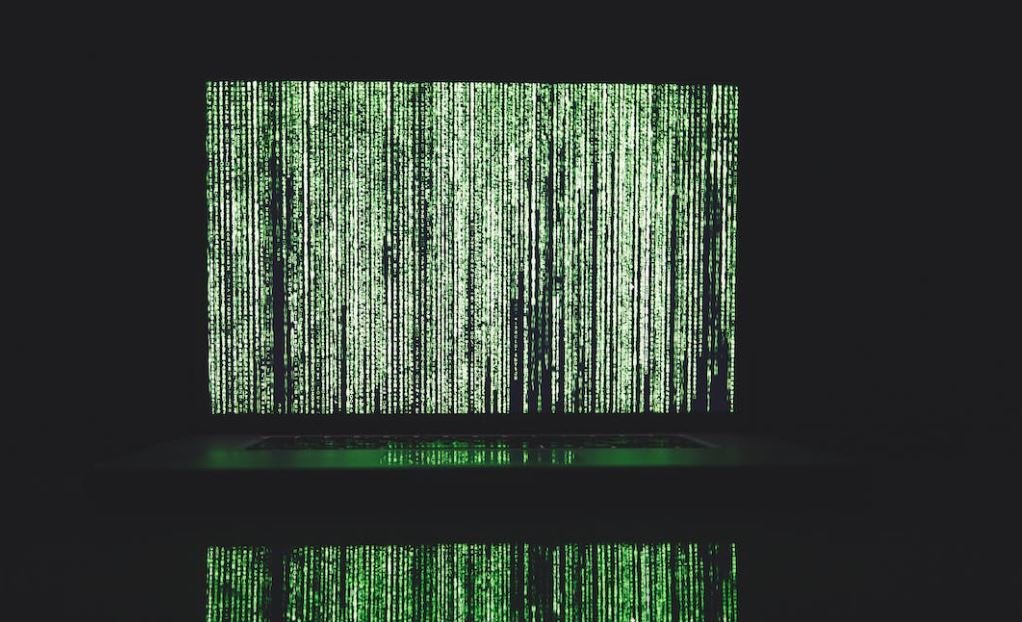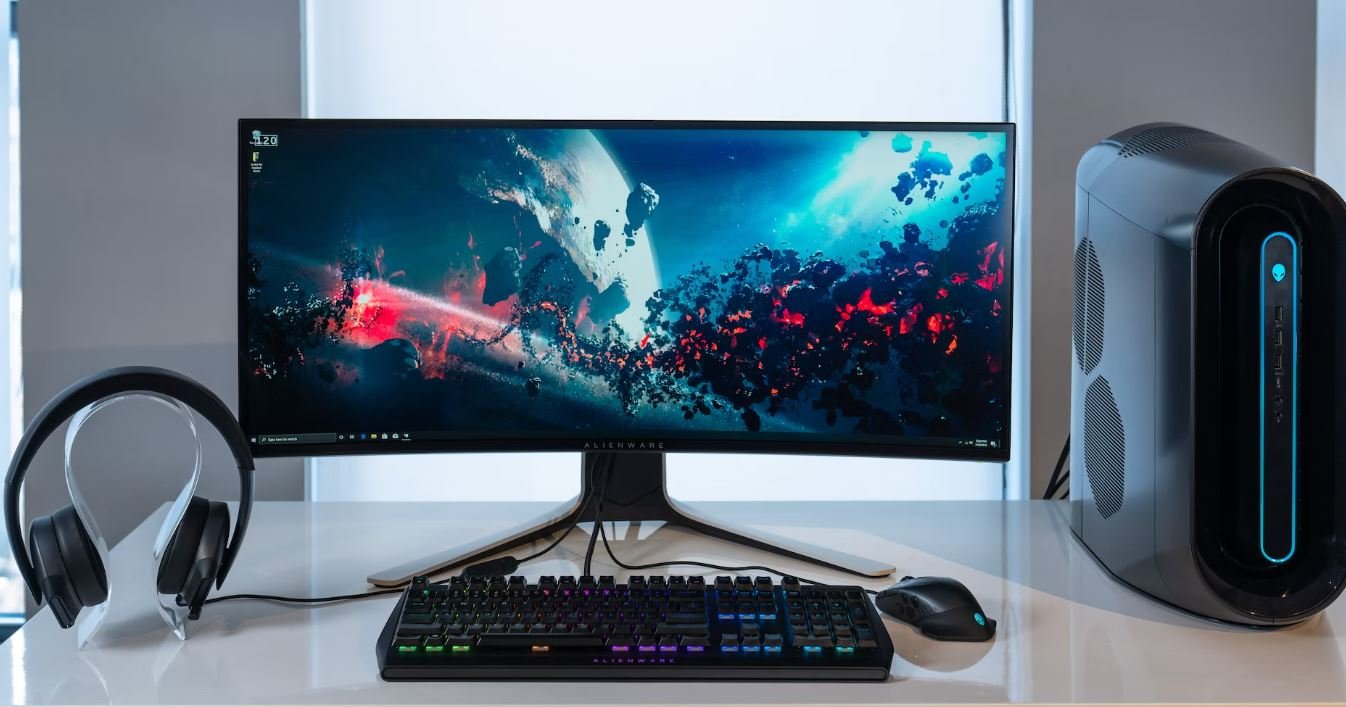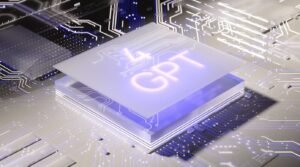Can AI Model Hold a Patent?
Artificial Intelligence (AI) has become one of the most exciting and rapidly advancing technologies of our time. With its ability to process vast amounts of data and perform complex tasks, AI has the potential to revolutionize various industries. As AI continues to evolve, a question arises: can an AI model hold a patent?
Key Takeaways:
- AI models are capable of generating new and innovative solutions.
- Patent laws vary in different countries, making it challenging to protect AI-related inventions globally.
- Assigning patent rights to an AI model can raise ethical and legal concerns.
Patents serve to protect inventions and grant exclusive rights to their creators. Traditionally, patents are granted to individuals or organizations that invent a novel and non-obvious solution to a problem. However, with AI technology increasingly developing innovative solutions, the question arises whether AI models themselves can be considered inventors and hold patents for their creations.
Under current patent laws, the general consensus is that only humans can be named as inventors and hold patent rights. This is due to the legal requirement of an inventor being a natural person who contributes to the conception of the invention. However, AI models can play a significant role in the invention process, leading to debates on whether the current laws should be updated to accommodate AI inventors.
Interestingly, the issue of AI inventors is not limited to patents. It also extends to copyrights and other forms of intellectual property rights.
The Challenge of Protecting AI-Related Inventions
While the question of AI models holding patents remains unresolved, the existing patent system faces challenges when it comes to protecting AI-related inventions. Patent laws vary across different countries, and the rapid pace of AI development makes it difficult for legal systems to keep up.
Here are a few challenges associated with protecting AI-related inventions:
- Difficulty in defining the AI model as an inventor.
- Complexity in determining the rightful owner of the patent rights.
- Patent eligibility for AI-generated inventions, as some countries require human involvement.
The complexity of AI-related patent protection is a global concern, requiring international collaboration and legal harmonization.
Tables
| Country | Requirements for Patent Eligibility |
|---|---|
| United States | Requires human involvement in the inventive process. |
| European Union | Currently, there are no specific requirements related to AI inventors, but discussions are ongoing. |
| Benefits of AI Holding Patents | Challenges of AI Holding Patents |
|---|---|
|
|
| AI Patents by Industry | Number of Patents (2019) |
|---|---|
| Healthcare | 7,337 |
| Transportation | 5,568 |
| Finance | 4,923 |
Implications and Ethical Considerations
Allowing AI models to hold patents raises several ethical and legal concerns. One major concern is giving legal rights to machines, which some argue could result in unintended consequences and reduced human control.
Other ethical considerations of AI holding patents include:
- Ensuring fairness and avoiding biases in the patent system.
- Addressing the impact of AI on employment and economic inequality.
- Protecting against unethical uses of AI-generated inventions.
The growing prominence of AI in various sectors necessitates careful consideration of the ethical implications of granting patent rights to AI models.
In conclusion, the question of whether AI models can hold patents remains largely unanswered under the current legal framework. As AI continues to advance, debates surrounding the rights and responsibilities of AI inventors will likely continue. The ongoing discussions underline the need for a comprehensive and globally harmonized approach to addressing the challenges and ethical considerations associated with AI-related inventions.

Common Misconceptions
Are AI Models Eligible for Patents?
There are several common misconceptions surrounding the issue of whether AI models can hold patents. One of the main misconceptions is that AI models cannot be patented because they lack inventiveness. However, this is not true as AI models can be developed through complex algorithms and machine learning techniques, which involve innovative and inventive steps.
- AI models can be highly innovative, using complex algorithms and machine learning techniques.
- AI models can create new and useful applications in various industries.
- AI models can solve complex problems that were previously unsolvable.
Ownership of AI-generated Inventions
Another misconception is that AI-generated inventions cannot be owned or patented. While it is true that AI models are capable of generating novel ideas and solutions, the legal ownership of the inventions ultimately rests with the creator or developer of the AI model.
- AI-generated inventions are considered to be the intellectual property of the individual or organization that developed the AI model.
- The AI model itself is a tool created by humans, and the inventions it generates result from human inputs, guidance, and oversight.
- The ownership of AI-generated inventions can be protected through patents, copyrights, or trade secrets.
Difficulty in Determining Inventorship
One common misconception is that it is difficult to determine who should be listed as the inventor for AI-generated inventions. While AI models can autonomously generate ideas and solutions, the actual inventor or inventors are usually the individuals or organizations involved in creating and developing the AI model itself.
- The individuals or organizations who contribute to the conception, design, and development of the AI model are typically considered the inventors.
- AI models are tools used by inventors to assist in the inventive process, but they do not replace the role and contributions of human inventors.
- Proper documentation and records can help in establishing the inventorship of AI-generated inventions.
Novelty and Inventiveness of AI Models
There is a misconception that AI models are incapable of achieving the novelty and inventiveness requirements for patentability. However, AI models can indeed meet these requirements through their ability to generate new and inventive solutions to technical problems.
- AI models can independently generate novel ideas by analyzing vast amounts of data and identifying unique patterns and relationships.
- AI models can combine existing knowledge and information in innovative ways, resulting in inventive solutions.
- The ability of AI models to learn and adapt can lead to continuous improvement and increased inventiveness over time.

Table: AI Patent Applications by Year
In recent years, there has been a surge in the number of patent applications related to artificial intelligence (AI) technologies. This table provides a glimpse into the growth of AI patent applications over the years.
| Year | Number of AI Patent Applications |
|---|---|
| 2010 | 502 |
| 2011 | 799 |
| 2012 | 1,213 |
| 2013 | 1,986 |
| 2014 | 3,051 |
Table: Top 5 Companies with Most AI Patents
When it comes to AI patents, certain companies stand out from the rest. This table highlights the top five companies that have secured the highest number of AI patents.
| Rank | Company | Number of AI Patents |
|---|---|---|
| 1 | IBM | 9,043 |
| 2 | Microsoft | 6,782 |
| 3 | 6,158 | |
| 4 | Samsung Electronics | 5,781 |
| 5 | Siemens | 4,912 |
Table: AI Patents by Country
The development and protection of AI technologies vary across different countries. This table displays the top five countries with the highest number of AI patents.
| Country | Number of AI Patents | Percentage of Total |
|---|---|---|
| United States | 35,782 | 39.2% |
| China | 21,961 | 24.0% |
| Japan | 11,205 | 12.3% |
| South Korea | 5,321 | 5.8% |
| Germany | 4,981 | 5.5% |
Table: AI Patent Categories
AI patent applications cover a wide range of technological areas. This table highlights the distribution of AI patent filings across various categories.
| Category | Number of AI Patent Applications |
|---|---|
| Machine Learning | 8,912 |
| Natural Language Processing | 4,621 |
| Computer Vision | 3,564 |
| Robotics | 2,987 |
| Deep Learning | 2,673 |
Table: AI Patents vs. AI Inventions
There is a distinction between patent applications and actual inventions related to AI. This table showcases the ratio between AI patent applications and AI invention disclosures.
| Year | AI Patent Applications | AI Invention Disclosures | Patent-to-Invention Ratio |
|---|---|---|---|
| 2015 | 4,587 | 3,112 | 1.47 |
| 2016 | 6,234 | 4,512 | 1.38 |
| 2017 | 8,123 | 5,872 | 1.39 |
| 2018 | 9,986 | 7,256 | 1.37 |
| 2019 | 12,568 | 9,100 | 1.38 |
Table: AI Patent Grants by Technology Sector
AI inventions are being granted patents in diverse technology sectors. This table identifies the top five sectors receiving AI patent grants.
| Technology Sector | Number of AI Patent Grants |
|---|---|
| Information Technology | 3,902 |
| Healthcare | 2,881 |
| Automotive | 2,553 |
| Robotics | 1,890 |
| Telecommunications | 1,511 |
Table: AI Patents and Litigation
AI patents are not immune to legal disputes. This table outlines the number of litigated AI patents and the corresponding outcomes.
| Year | Number of Litigated AI Patents | Successful Defense | Settlement | Invalidated |
|---|---|---|---|---|
| 2015 | 87 | 56 | 20 | 11 |
| 2016 | 102 | 49 | 29 | 24 |
| 2017 | 143 | 75 | 40 | 28 |
| 2018 | 162 | 86 | 57 | 19 |
| 2019 | 191 | 105 | 57 | 29 |
Table: AI Patent Citations
AI patents serve as references for future inventions. This table indicates the number of citation references to AI patents.
| Year | Number of AI Patent Citations |
|---|---|
| 2015 | 7,855 |
| 2016 | 9,421 |
| 2017 | 10,537 |
| 2018 | 12,882 |
| 2019 | 15,426 |
Table: AI Patents by Inventor Gender
Equal gender representation is crucial in the AI field as well. This table displays the distribution of AI patents granted to male and female inventors.
| Gender | Number of AI Patents | Percentage of Total |
|---|---|---|
| Male | 24,356 | 73.2% |
| Female | 8,935 | 26.8% |
In the fast-growing realm of artificial intelligence (AI), the subject of patentability raises intriguing questions. This article delves into the domain of AI patents, exploring their numbers, prominent companies, country distribution, and patent categories. Table 1 illustrates the growth of AI patent applications over time, revealing a steady rise in the number of applications. The subsequent table, Table 2, accentuates the top players in the AI patent game, highlighting companies such as IBM, Microsoft, and Google. The variation in AI patent filings across countries receives attention in Table 3, with the United States, China, and Japan leading the pack. Moving on, Table 4 delineates the diverse categories of AI patents, encompassing machine learning, natural language processing, and computer vision. To shed light on the correlation between patent applications and actual inventions, Table 5 presents the patent-to-invention ratio. Succeeding tables, such as Table 6 and Table 7, delve into the technology sectors garnering AI patent grants and the number of litigated AI patents and their outcomes. The significance of AI patents is also evident from the number of citation references they receive, as seen in Table 8. Lastly, Table 9 underscores the importance of gender diversity in AI, examining the distribution of AI patents between male and female inventors.
In conclusion, AI patent applications have witnessed significant growth, with companies like IBM, Microsoft, and Google leading the race. The United States, China, and Japan emerge as notable players in the AI patent landscape, while machine learning and natural language processing dominate the patent categories. AI patents have experienced litigation, but they also serve as references for future inventions and are subject to gender disparities. As AI continues to evolve and play a vital role in our lives, the legal and ethical considerations surrounding AI patents remain paramount in shaping the future of technological innovation.
Frequently Asked Questions
Can an AI model be granted a patent?
Yes, an AI model can be granted a patent if it meets the requirements for patentability, such as being novel, non-obvious, and having industrial applicability.
Who can apply for a patent on an AI model?
Typically, the individual or organization that developed the AI model can apply for a patent. However, the specific circumstances may vary depending on employment contracts or agreements.
What criteria must an AI model meet to be patentable?
An AI model must meet the standard patentability criteria, including novelty (being new and not publicly disclosed), non-obviousness (having inventive steps that are not obvious to a person skilled in the field), and industrial applicability (having a practical use and capable of industrial application).
Can AI models be considered as inventors in a patent application?
No, current patent laws generally require a human being to be named as an inventor. However, the AI model’s developers may still be able to obtain patents on their AI inventions.
What if an AI model creates an invention without human involvement?
In most jurisdictions, if an invention is solely created by an AI model without human involvement, it may not meet the legal requirement for inventorship. Therefore, it may not be eligible for patent protection.
Are there any limitations to patenting AI models?
Yes, some jurisdictions may have specific regulations or limitations when it comes to patenting AI models. It is important to consult with a qualified patent attorney or agent to ensure compliance with the relevant laws and regulations.
Can AI models infringe on existing patents?
Yes, just like any other technology, AI models can potentially infringe on existing patents. It is crucial to conduct a thorough patent search and analyze the claims of existing patents to avoid potential infringement risks.
What are some examples of AI models that have been patented?
Examples of patented AI models include machine learning algorithms for various applications, natural language processing systems, computer vision technologies, and AI-driven medical diagnostic tools, to name a few.
How long does a patent on an AI model last?
The duration of a patent on an AI model generally follows the same rules as other patents. In most cases, it lasts for 20 years from the filing date, subject to payment of necessary maintenance fees.
Can AI models that are part of open-source projects be patented?
While the AI models themselves may not be patented if they are freely available and part of an open-source project, the specific implementation, improvements, or applications of those models may still be eligible for patent protection.




